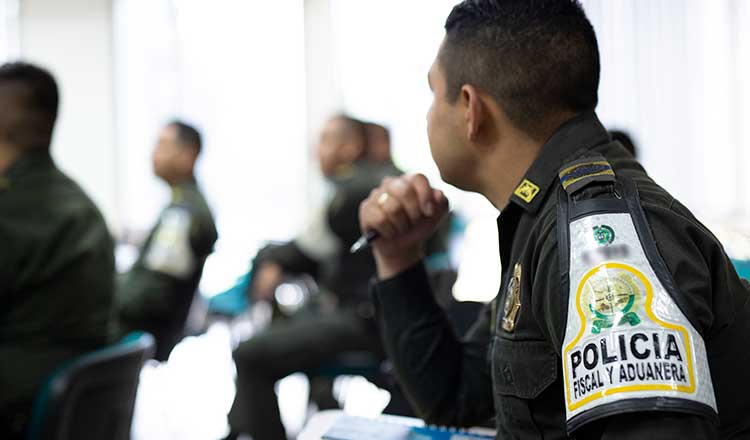| INTEGRATED REPORT 2020 |
Taxes and user fees can generate the necessary revenues and avoid our passing the bill of funding today’s society to future generations. In addition to generating revenues, taxes can also ensure that societal costs are properly reflected in the product price—for instance, in the case of fossil fuels and tobacco products—thereby encouraging consumers and producers to shift toward less harmful options.
PMI aspires to be a good corporate citizen in every country where we operate.
Paying taxes commensurate with our activities in each country is not only our duty but the responsible thing to do, and a key part of our social contract in every country where we operate.
The table below provides an overview of the corporate income tax, tobacco excise taxes, and VAT and sales tax reported by PMI and its affiliates in the countries where we operate. In addition to the taxes reported by PMI legal entities, in many countries, our importers or distributers are responsible for paying import duties and excise taxes on our products. These amounts are also shown in the table below, because even though not all such payments may be part of PMI’s financial statements, they are part of the product taxes paid by our consumers worldwide.
Fair fiscal practices is a tier 2 topic within our strategic pillar Operating with excellence.
PMI has implemented governance arrangements which set out clear accountabilities for the management of tax compliance risks and tax planning. We maintain a comprehensive, effective, and practical risk management program, with shared best practices, a structured and documented control framework, appropriate planning, and coordinated decision-making.
Our mandatory practices include:
- Roles and responsibilities: Clear definition of roles and responsibilities are formalized in each PMI affiliate in accordance with PMI’s Tax Compliance Program.
- Escalation and involvement of PMI Tax department: In accordance with PMI’s policies, PMI affiliates consult with the PMI Tax department on all important transactions, including recurring or new transactions, business structures or operations with other PMI affiliates or unrelated parties, and determine positions, exposures, or actions regarding material, non-routine tax, or customs matters. Where there is sufficient uncertainty over the tax treatment of a particular transaction or there is a potentially significant impact, external advice is obtained.
- Tax reporting and procedures: PMI’s Tax Standards and Guidelines are designed to ensure that effective and predictable tax compliance and control measures are in place. In accordance with these policies, all tax filing obligations must be accurately completed on a timely basis and in accordance with applicable laws and regulations.
- Documentation and tax records: In accordance with PMI’s policies, PMI affiliates are responsible for the appropriate creation and retention of all relevant local tax records.
PMI very much supports the work by the OECD and G20 to prevent tax base erosion and profit shifting as applied by some multinational corporations. PMI’s policy and practice is to ensure that we pay tax commensurate with our activities and corporate substance in each country. We do not engage in aggressive tax planning, and we do not abuse tax havens and do not have in place any contrived tax structures. We also do not operate “letter box” companies. PMI conducts all inter-company transactions on an arm’s-length basis in accordance with current OECD principles, and we support greater transparency between taxpayers and tax authorities.
When it is relevant and feasible, we have upfront conversations with tax authorities in the countries where we operate to minimize uncertainty on both sides. For example, tax rulings do provide a higher level of certainty not just for us but also for the tax authorities.
However, tax rulings are not the only means of securing transparency and certainty. For example, in Australia we are part of the Lead Relationship Manager Program, and in Russia and the Netherlands we joined Monitoring Programs. Both programs promote ongoing and transparent relations between taxpayers and tax authorities. In the U.K., PMI interacts in an open and real-time manner with Her Majesty’s Revenue and Customs (HMRC), and we conduct an annual Business Risk Review with HMRC at which key tax issues and business changes with a potential U.K. tax impact are discussed.







